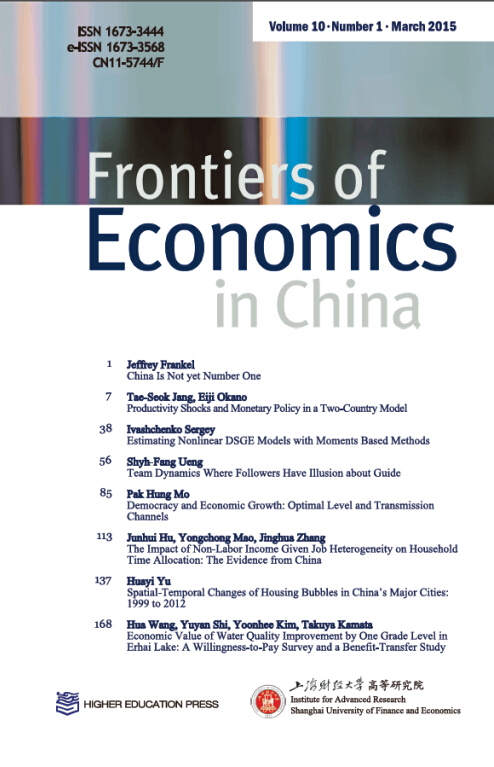互惠与社会规范:金融激励的短期和长期挤出效应
IF 1.5
4区 经济学
Q2 ECONOMICS
引用次数: 0
摘要
我们将Falk和Fischbacher(2006)的互惠模型与规范社会行为理论联系起来,研究财务激励如何在短期和长期内挤出内在动机。使用一个基于实验室的重复公共产品游戏的数据,我们发现有力的证据支持互惠模型和在支付到位和停止后的挤出效应。当支付计划到位时,受试者对互惠的敏感度会降低,对他人贡献的善意会减少,对他人福利的关心也会减少。回报动机的总体下降使支付计划的有效性降低了近50%。大约20%的挤出效应在支付停止后持续存在,互惠机制解释了超过四分之三的长期挤出效应。本文章由计算机程序翻译,如有差异,请以英文原文为准。
Reciprocity and Social Norms: Short- and Long-Run Crowding Out Effects of Financial Incentives
We link the reciprocity model of Falk and Fischbacher (2006) with the theory of normative social behavior to study how financial incentives crowd out intrinsic motivation in both the short and long runs. Using data from a lab-based repeated public goods game, we find strong evidence in support of the reciprocity model and crowding out effects both when the payment is in place and after it stops. When the payment program is in place, subjects become less sensitive to reciprocity, perceive less kindness in others’ contributions, and care less about others’ welfare. The overall decrease in motivation to reciprocate reduces the effectiveness of the payment program by almost 50%. About 20% of the crowding out effect persists after the payment stops, and the reciprocity mechanism explains over three quarters of the long-run crowding out effect.
求助全文
通过发布文献求助,成功后即可免费获取论文全文。
去求助
来源期刊

Frontiers of Economics in China
ECONOMICS-
CiteScore
1.20
自引率
0.00%
发文量
373
期刊介绍:
Frontiers of Economics in China seeks to provide a forum for a broad blend of peer-reviewed academic papers of economics in order to promote communication and exchanges between economists in China and abroad. It will reflect the enormous advances that are currently being made in China in the field of economy and society. In addition, this journal also bears the mission of introducing the academic achievements on Chinese economics research to the world.
 求助内容:
求助内容: 应助结果提醒方式:
应助结果提醒方式:


